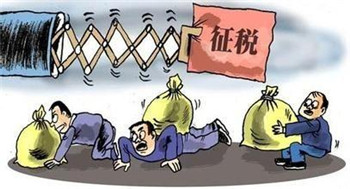(单词翻译:单击)

The world’s leading finance ministers agreed new rules for taxing profits yesterday, warning multinational companies they can no longer use their size and international presence to dodge taxes.
世界主要国家的财长昨日商定了对利润征税的新规则,警告跨国企业不能再利用其规模和国际经营范围来避税。
Under the new rules, companies such as Starbucks, Amazon and Google will find it harder to concentrate their profits in low-tax countries and tax havens, raising up to $250bn a year in additional tax revenues, according to the OECD.
经合组织(OECD)表示,根据新规,星巴克(Starbucks)、亚马逊(Amazon)和谷歌(Google)等企业将发现更难把利润集中于低税国家和避税天堂,全球每年将额外增加多达2500亿美元的税收。
Angel Gurría, head of the OECD, the club of mostly rich nations that has drawn up the new rules, said it was time “to recover the trust of our citizens” and move to the next phase of a “well-defined trilogy: implementation, implementation, implementation”.
主要由富裕国家组成的经合组织制定了这些新规。该组织秘书长安赫尔古里亚(Angel Gurría)称,是时候“恢复公民的信任”,并进入“定义明确的三部曲:实施、实施、实施”的下一个阶段了。
The plans to crack down on corporate tax avoidance were devised by more than 60 governments in the first big overhaul of the rules for taxing profits for nearly a century.
这套打击企业避税的计划由超过60个政府制定,是近一个世纪以来首次对利润税收规则进行重大改革。
But campaigners have criticised the rules for merely patching up the existing system, although businesses say they have a greater degree of consensus than initially expected.
但是,活动人士批评这些规则只是对现有税收体系进行修补,尽管企业称,它们具有比最初预计更高程度的共识。
The rules, called “base erosion and profit shifting” or Beps, are designed to close loopholes and restrict the use of tax havens. They are the culmination of an ambitious international project launched two years ago by G20 governments in response to public anger over corporate tax avoidance.
这些被称为“税基侵蚀和利润转移”(base erosion and profit shifting,简称Beps)的规则,旨在堵住漏洞和遏制利用避税天堂的行为。它们是两年前20国集团(G20)为应对公众对企业避税的愤怒而推出的一个雄心勃勃的国际项目的结晶。
Finance ministers from the world’s largest economies hailed the rules, which they hope will raise tax revenues and force companies to pay what they owe. Lou Jiwei, China’s finance minister, said each nation must “enhance domestic reforms” to implement the rules.
全球大型经济体的财长们对这些规则表示欢迎,他们希望这些规则将提高税收,迫使企业缴纳它们应交的税款。中国财长楼继伟称,每个国家都必须“强化国内改革”以实施这些规则。


